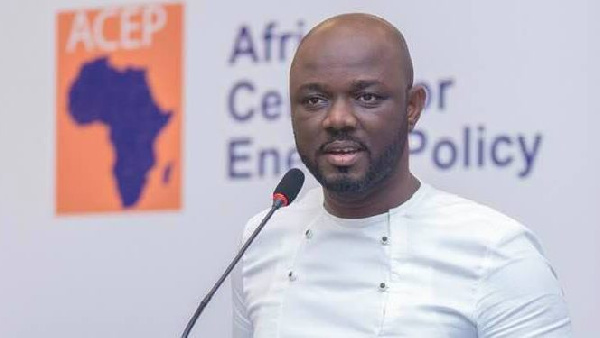- while US$510m AMERI plant rots away
The Africa Centre for Energy Policy (ACEP) has questioned government’s decision to extend its contract with AKSA Plant with a 15-year extension.
The AKSA power plant, which ACEP says is over-aged, has earned the company an estimated US$700million for capital recovery and fixed operation and maintenance while delivering an average of 16 percent utilisation between 2017 and 2022. However, it has now been assigned a capital recovery charge of about US$750million over the extended period.
The AKSA plants are old Watsila engines assembled by a private developer during the Dumsor period in 2015, with units from various countries, including Cyprus and Sri Lanka procured at a cost between US$1.2million and US$2million per unit.
ACEP estimates that the total investment cost of the projects should not exceed US$60million, a fact that the sector regulators are aware of.
“Over the past six years, the company has earned approximately US$700million from the people of Ghana for capital recovery and fixed operation and maintenance. Remarkably, these same plants are now being assigned a capital recovery charge of about US$750million for the next 15 years under the pretext of retrofitting them to improve efficiency. In other words, government and the Electricity Company of Ghana (ECG) suggest that these over-20 year-old plants will operate efficiently for another 15 years,” it said in a new report.
It further questioned why both the Energy Commission and Public Utility Regulatory Commission (PURC) approved the deal, given its potential negative impact on the power sector.
In its July report on the power sector, ACEP maintained that deploying the most efficient power plants in Ghana is crucial for long-term sustainability and prudent management of the sector to save costs and ensure reliability.
The renewed AKSA power plants, old Watsila engines assembled by a private developer in 2015, with units from various countries including Cyprus and Sri Lanka procured at a cost between US$1.2million and US$2million per unit.
The civil society group noted that the facility has been overpaid for by Ghanaians. To the extent that the current arrangement has been concluded, ACEP further argued that the posture is not only incompetent but also undermines engineering features of new power generation systems.
“Proper system planning will ensure that generation additions deploy state-of-the-art modern equipment, mainly when the state is the fuel supplier. It is also a basic fact that old plants are less reliable.
“For a power system struggling to recover from persistent power interruptions, planning to build long-term efficient power systems is a fiducially duty of government and its agencies. No company should promise a reliable power supply from dead plants, no matter how cheap the promise would be,” it stated.
Following this development, ACEP opined that inconsistencies surrounding the justification for extending these power plants necessitate a closer examination. This comes on the back of explanations from the Ministry of Energy that there is a current need for additional capacity; a position ACEP says contradicts the ongoing assertion that there is already excess capacity.
Meanwhile, it said ECG persistently attributes the under-recoveries to this purported excess capacity: “Furthermore, a perplexing shift in perspective has occurred; as individuals who previously criticised the concept of take-or-pay agreements now deem it acceptable when the percentage is lower – about 40 percent in the case of AKSA”.
“It is important to note that even a mere one percent of take-or-pay becomes problematic when a plant is deemed surplus to requirements. In essence, take-or-pay is not a problem when the plant is required. It is only a risk mitigation measure to guarantee the repayment of investment capital, which has proven to be relevant in our context. Had the companies not signed take-or-pay agreements, there would have been a high chance that government would ignore paying the IPPs for their investments.
“These inconsistencies in reasoning and selective acceptance of unfavourable terms raise concerns about transparency and accountability. It is crucial to scrutinise these contradictory narratives and render the sector free from political expediency. It is imperative to hold those involved accountable and ensure efficient decision-making that aligns with the Ghanaian people’s overall welfare. This is a test that the new AKSA contract fails at all levels. The mysteries surrounding the AKSA project would be subject to criminal investigation in any serious country,” the ACEP report noted.
More worryingly, it said the same AKSA projects are under scrutiny by the United States government authorities for alleged bribery payments to Ghanaian government officials.
But while extending the AKSA plant – the AMERI plant for which Ghanaians have paid the full value of US$510 million – is idling and deteriorating. The plant has been left neglected under the pretext of relocation to Kumasi, ACEP fumed.
The plant’s lack of maintenance has rendered it deplorable – with leaky roofs, damaged air-conditioners and non-operating computers in some of the units.
While the relocation tarries and the plant deteriorates, the pipeline to supply gas is already completed – requiring a pass-through of its cost to the public through tariffs.
Already, the Ghana National Petroleum Corporation (GNPC) is demanding a tariff adjustment to accommodate gas discounts provided to Genser – which ACEP and Imani estimate to be about US$1.5billion over the 16-year contract period.
Again, other single-cycle plants of Volta River Authority (VRA), like the KTPP and TTIP, require investment to convert them into combine-cycle plants to achieve better efficiency than AKSA.
However, those critical assets are wasting away while ECG and the ministry extend other power plants on a take-or-pay basis, ACEP concluded on the issue.










